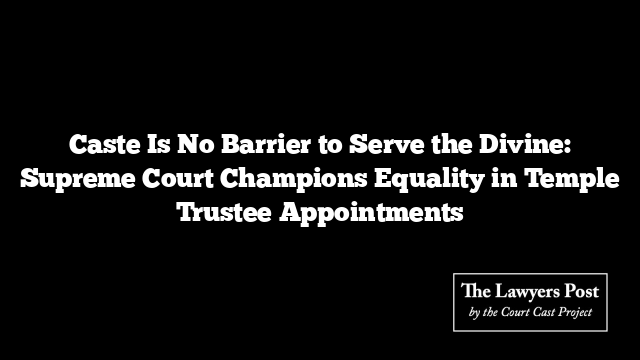The Supreme Court of India has reaffirmed a progressive principle: caste cannot dictate the appointment of non-hereditary trustees in temples. This declaration emerged during the court’s review of a challenge to a Kerala High Court decision concerning appointments under the Malabar Devaswom Board (MDB).
The case revolved around the dismissal of previous appointments to temple trustee positions, deemed non-compliant with the Madras Hindu Religious and Charitable Institutions Act. While upholding the High Court’s directions for fresh, merit-based appointments, the Supreme Court emphasized that human-made constructs like caste, religion, and language must not influence such decisions.
“God did not create classifications of race, religion, language, or caste. These are human constructs,” the Court observed. It firmly stated that caste should never serve as a barrier in selecting trustees for temples, ensuring that equality and fairness govern the process.
The High Court case stemmed from a petition challenging appointments allegedly influenced by politics and personal affiliations. The petitioner argued that appointees included active politicians and others unconnected to temple management, contravening earlier judicial orders. The Supreme Court’s ruling reinforces the need for transparency and impartiality, steering temple management away from political and caste-based influences.
This landmark stance by the judiciary not only reiterates the secular ethos of temple governance but also sets a precedent for inclusive practices in other cultural and religious institutions across the country.





